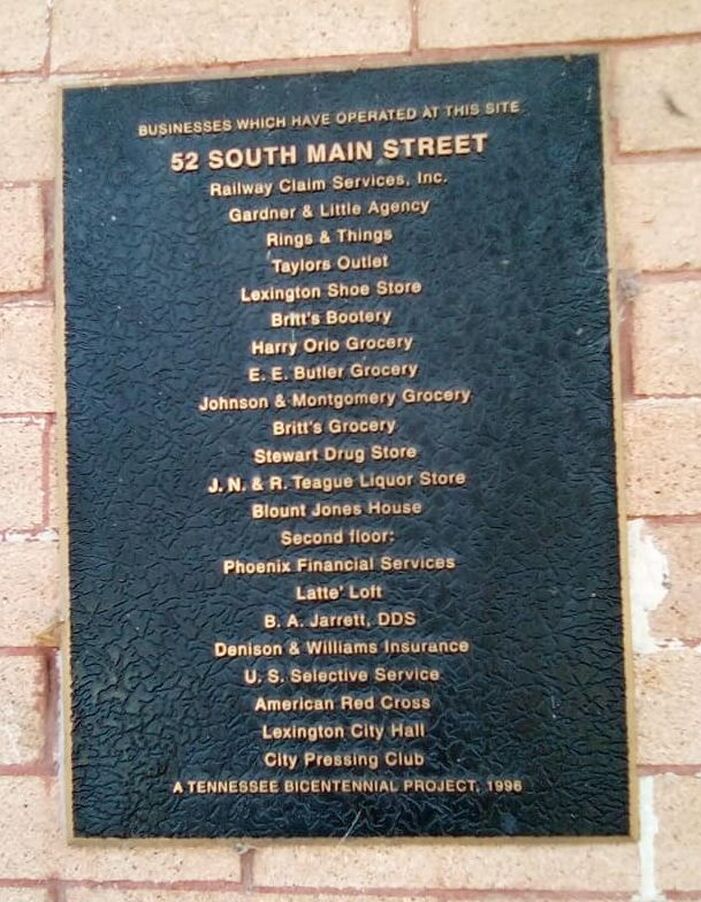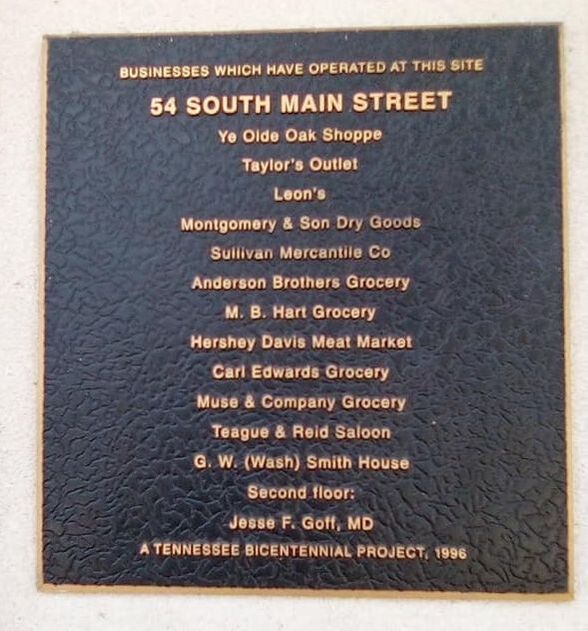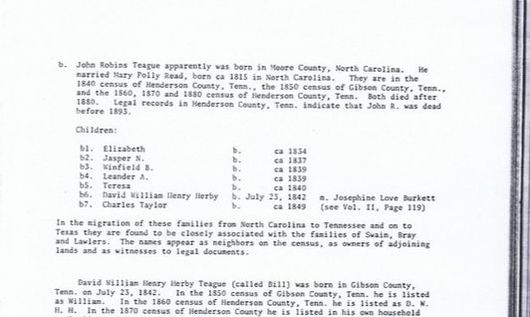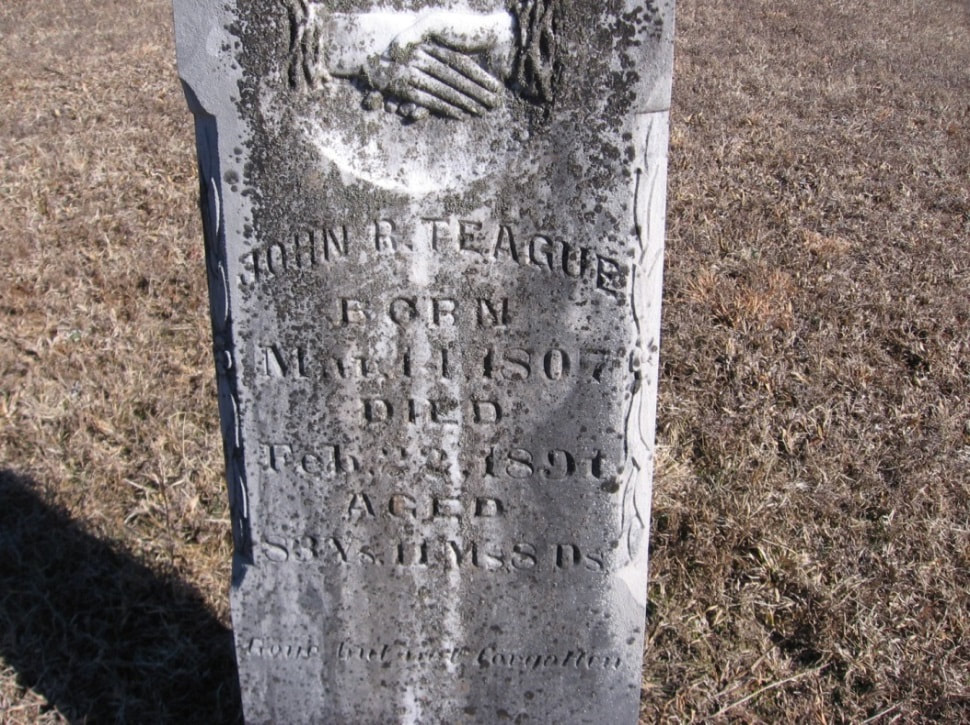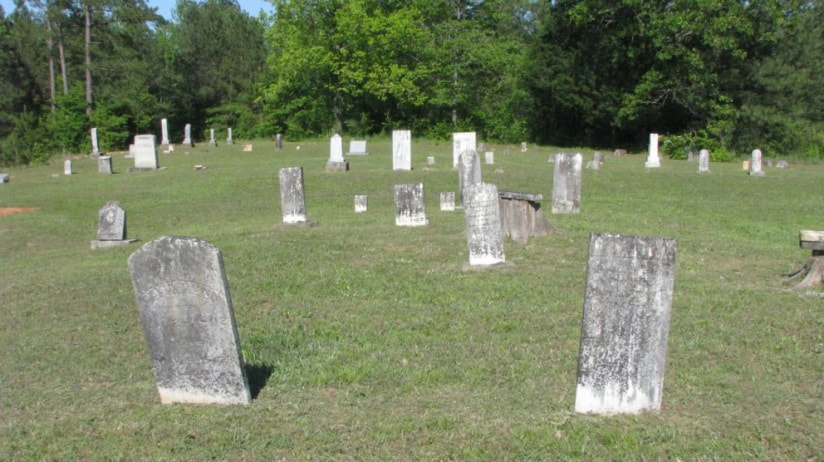John Robin Teague
(March 14, 1807 - February 22, 1891)
Mary Polly Reid
(June 13, 1813 – August 8, 1892)
(March 14, 1807 - February 22, 1891)
Mary Polly Reid
(June 13, 1813 – August 8, 1892)
John was born on March 14, 1807, in Moore County, North Carolina to Isaac Teague and Amy Rebecca Lawler. He married Mary Polly Reid. She was born on June 13, 1813 in North Carolina. John was also called Robin in several documents and books. His middle name was also spelled either with 1 B or 2.
John was a farmer who owned 243 acres, owned a saloon on the courthouse square, and was a Justice of the Peace. On August 5, 1861, John R.(Robin) Teague, John Teague and B.J. Teague, among other county justices, voted under pressure from the Governor of Tennessee to appoint a Home Guard of Minute Men to protect the several districts of Henderson County. A company was never formed. In July 1866, Henderson County Court appointed J.R. Teague to a committee responsible for contracting and constructing a new courthouse. The cost was $7,500.
John died on February 22, 1891, in Henderson County, Tennessee and is buried in Antioch Cemetery, Lexington—Henderson County, Tennessee. Mary died on August 8, 1892 also in Henderson County and is buried beside John.
Children of John and Mary:
John was a farmer who owned 243 acres, owned a saloon on the courthouse square, and was a Justice of the Peace. On August 5, 1861, John R.(Robin) Teague, John Teague and B.J. Teague, among other county justices, voted under pressure from the Governor of Tennessee to appoint a Home Guard of Minute Men to protect the several districts of Henderson County. A company was never formed. In July 1866, Henderson County Court appointed J.R. Teague to a committee responsible for contracting and constructing a new courthouse. The cost was $7,500.
John died on February 22, 1891, in Henderson County, Tennessee and is buried in Antioch Cemetery, Lexington—Henderson County, Tennessee. Mary died on August 8, 1892 also in Henderson County and is buried beside John.
Children of John and Mary:
- Elizabeth Teague, Abt. 1834
- Jasper N. Teague, Abt. 1837 - MILITARY RECORD: Mustered in the Union Army on September 8, 1862 at Jackson, Tennessee. He was in the 7th Tennessee Volunteer Cavalry, Company A. He paid $100 bounty, furnished his own horse and equipment. Rank -- Corporal. Rank at discharge -- Sergeant. The records report several AWOLs, but he and his company were captured, exchanged, and recaptured. They spent time in Camp Chase, Ohio, Union City, Tennessee, and finally Andersonville Prison in Georgia. They were paroled through North East Ferry on February 28, 1865 and discharged August 9, 1865. For a thorough history of the 7th Tennessee Volunteer Cavalry, Peggy Scott Holley has written a history that you can read. The on-line version is: THE SEVENTH TENNESSEE VOLUNTEER CAVALRY WEST TENNESSEE UNIONISTS IN ANDERSONVILLE PRISON. http://www.stkusers.com/lindas/history.html
- Winfield Valentine Teague, September 05, 1838
- Leander Arison Teague, September 05, 1838 - MILITARY RECORD: Mustered in the Union Army on September 8, 1862 at Jackson, Tennessee. He was in the 7th Tennessee Volunteer Cavalry, Company A. He paid $100 bounty, furnished his own horse and equipment. Rank -- Corporal. Rank at discharge -- Sergeant. The records report several AWOLs, but he and his company were captured, exchanged, and recaptured. They spent time in Camp Chase, Ohio, Union City, Tennessee, and finally Andersonville Prison in Georgia. They were paroled through North East Ferry on February 28, 1865 and discharged August 9, 1865. For a thorough history of the 7th Tennessee Volunteer Cavalry, Peggy Scott Holley has written a history that you can read. The on-line version is: THE SEVENTH TENNESSEE VOLUNTEER CAVALRY WEST TENNESSEE UNIONISTS IN ANDERSONVILLE PRISON. http://www.stkusers.com/lindas/history.html
- Serena Teague November 17, 1840
- David William Henry Herby Teague, July 23, 1842
- Charles Taylor Teague; b. March 17, 1844; d. February 28, 1927; m. Elizabeth R. Burkett
NEWSPAPER ARTICLES - Lexington, Tennessee
These articles were found in the book "W.V. Barry's Lexington Progress 1884-1946", Brenda Kirk Fiddler, Editor
"The Lexington Progress", MARCH 10, 1933
Grocery Row at Close of Civil War
After the Civil War, ending in 1865, the Southwest side of the Public Square of Lexington, now beginning with the Edwards Building at the South corner and ending with the Council Block on the West corner and across what used to be called Purdy Street, was called "Grocery Row," from the fact that most of the space was occupied by houses called 'groceries'--and groceries in those days included whiskey--and whisky in those days meant the real product of corn, honestly distilled and not a vile concoction of sugar, cornmeal, etc., made these days by men who have no regard for human life--and consumed and sold by men who have no regard for human souls.
According to my historian, Esq. W. T. Threadgill, that side of the Public Square of Lexington began on the present North corner of the Boswell lot and was occupied by the blacksmith shop of the late Carter Madison, while the other corner of the Boswell lot, now the site of the brick house built by the late E. Frank Boswell, was then the home of the late Major Tom Smith (father of our present citizen and retired rural mail carrier, Tom B. Smith). The present open space between the Boswell lot and the Edwards lot is a part of the original plat of Lexington, and after it came the Moffitt livery stable run by the late James Moffitt, who died in Jackson. I have heard it told that Mr. Moffitt presented a bill to a certain citizen for use of a horse and the fellow said, "Who the hell ever heard of charging a fellow for a horse to go to mill." But in this statement I have gone too fast and jumped some buildings, for I learn that the first building after the open space was the Kizer drugstore and after that a house that stood vacant during the war, vacated by Wash (G.W.) Smith, who went to Decaturville and for many years was a merchant there, beside having a mill, known as the Dixie Mill, on Beech River about five miles from Decaturville--in fact "Uncle Wash" Smith and his son Reuben, were in business there when I went to Decaturville in 1881. Blount Jones vacated the next house at about the same time. Then came the Moffitt stable I first mentioned by mistake, then the present alley between Wadley's store and the Council Block. First after the alley came Ike Hall's inn or tavern and of course a liquor bar with it, a two-story brick, all the houses on the other side of the alley being of wood. Ike Hall was in sympathy with the Federals and his house was designated as the place where citizens must deposit all fire arms. This was the same building that had been run as a tavern by Mills Darden, who, before his death was said to have been the largest man in the United States, who died in 1857 if I am not mistaken and, whose grave is in sight of the railroad a few miles West from the Public Square. The corner lot now occupied by the W.A. Lawler drug store was a two-story before the war. This house was vacated during the war and reopened in 1866 by the same men. The two-story brick, which was on that corner when I came to Lexington in March 1884, was built by the late W.C. McHaney and burned while occupied as a grocery store by a man named Middleton.
Just after the War, the Wash Smith house, I mentioned before, was occupied as a saloon by Jasper N. Teague and "Cap" Reed, and in the Blount Jones house J.N. and "R" Teague (father of Will and "Sooner") dispensed spiritus frumenti.
These articles were found in the book "W.V. Barry's Lexington Progress 1884-1946", Brenda Kirk Fiddler, Editor
"The Lexington Progress", MARCH 10, 1933
Grocery Row at Close of Civil War
After the Civil War, ending in 1865, the Southwest side of the Public Square of Lexington, now beginning with the Edwards Building at the South corner and ending with the Council Block on the West corner and across what used to be called Purdy Street, was called "Grocery Row," from the fact that most of the space was occupied by houses called 'groceries'--and groceries in those days included whiskey--and whisky in those days meant the real product of corn, honestly distilled and not a vile concoction of sugar, cornmeal, etc., made these days by men who have no regard for human life--and consumed and sold by men who have no regard for human souls.
According to my historian, Esq. W. T. Threadgill, that side of the Public Square of Lexington began on the present North corner of the Boswell lot and was occupied by the blacksmith shop of the late Carter Madison, while the other corner of the Boswell lot, now the site of the brick house built by the late E. Frank Boswell, was then the home of the late Major Tom Smith (father of our present citizen and retired rural mail carrier, Tom B. Smith). The present open space between the Boswell lot and the Edwards lot is a part of the original plat of Lexington, and after it came the Moffitt livery stable run by the late James Moffitt, who died in Jackson. I have heard it told that Mr. Moffitt presented a bill to a certain citizen for use of a horse and the fellow said, "Who the hell ever heard of charging a fellow for a horse to go to mill." But in this statement I have gone too fast and jumped some buildings, for I learn that the first building after the open space was the Kizer drugstore and after that a house that stood vacant during the war, vacated by Wash (G.W.) Smith, who went to Decaturville and for many years was a merchant there, beside having a mill, known as the Dixie Mill, on Beech River about five miles from Decaturville--in fact "Uncle Wash" Smith and his son Reuben, were in business there when I went to Decaturville in 1881. Blount Jones vacated the next house at about the same time. Then came the Moffitt stable I first mentioned by mistake, then the present alley between Wadley's store and the Council Block. First after the alley came Ike Hall's inn or tavern and of course a liquor bar with it, a two-story brick, all the houses on the other side of the alley being of wood. Ike Hall was in sympathy with the Federals and his house was designated as the place where citizens must deposit all fire arms. This was the same building that had been run as a tavern by Mills Darden, who, before his death was said to have been the largest man in the United States, who died in 1857 if I am not mistaken and, whose grave is in sight of the railroad a few miles West from the Public Square. The corner lot now occupied by the W.A. Lawler drug store was a two-story before the war. This house was vacated during the war and reopened in 1866 by the same men. The two-story brick, which was on that corner when I came to Lexington in March 1884, was built by the late W.C. McHaney and burned while occupied as a grocery store by a man named Middleton.
Just after the War, the Wash Smith house, I mentioned before, was occupied as a saloon by Jasper N. Teague and "Cap" Reed, and in the Blount Jones house J.N. and "R" Teague (father of Will and "Sooner") dispensed spiritus frumenti.
Your browser does not support viewing this document. Click here to download the document.
The Teague and Reed Saloon owned by Jasper (son of Robin and Polly) and Cap Reed was located at #28, actual address was 54 South Main Street. Robin and his son Jasper's store, J.N. and R. Teague Liquor Store, was located next door at 52 South Main Street.
Proudly powered by Weebly
